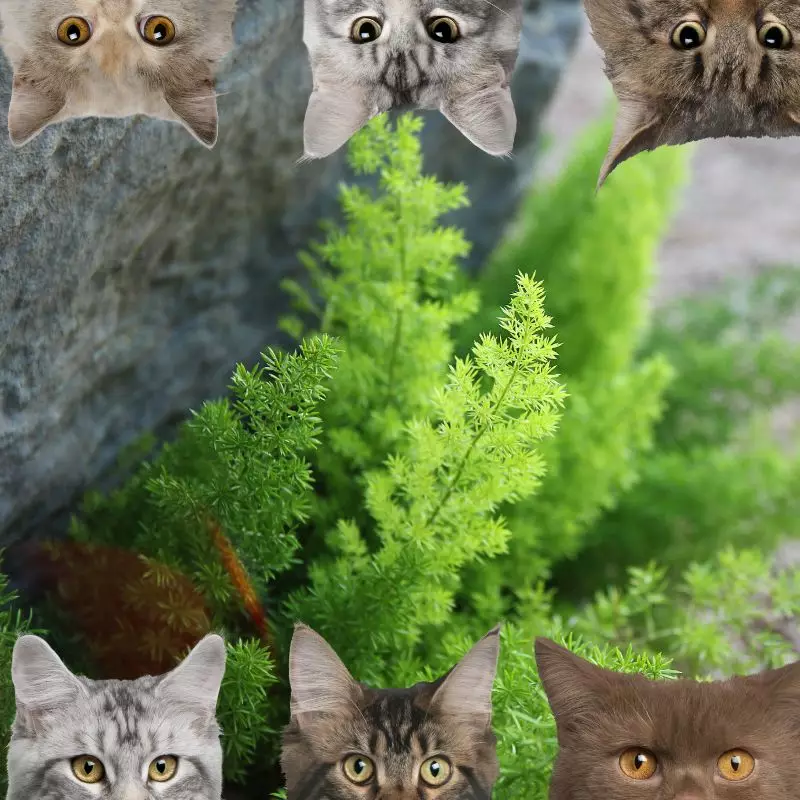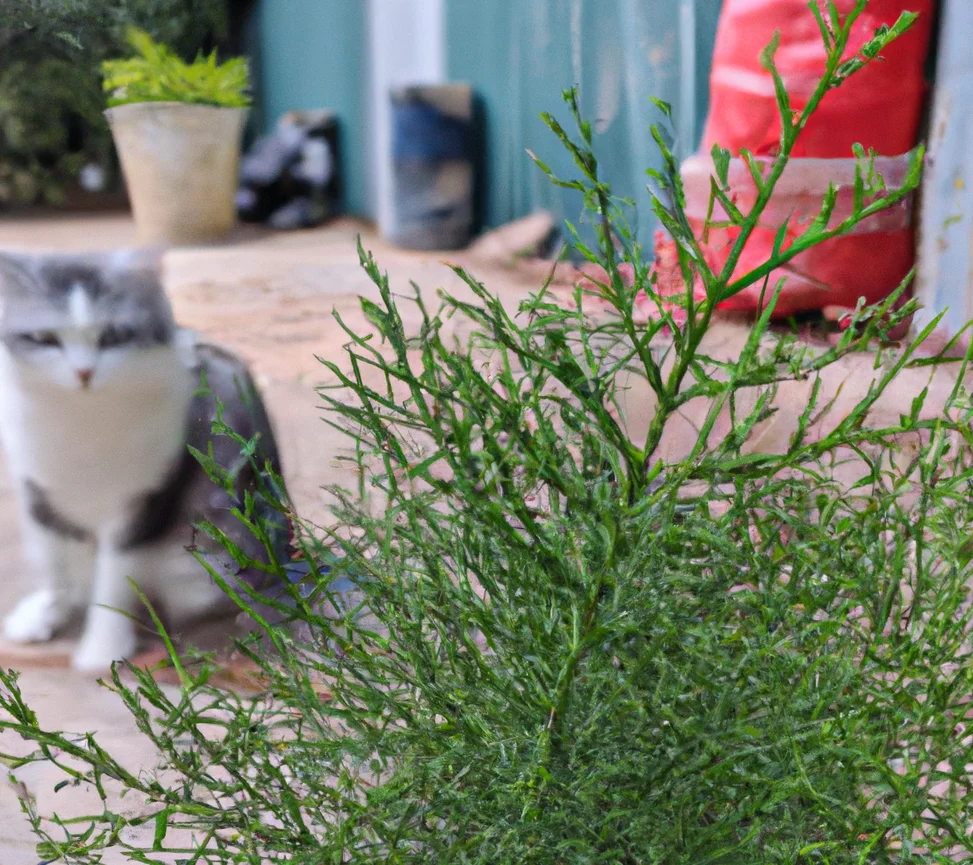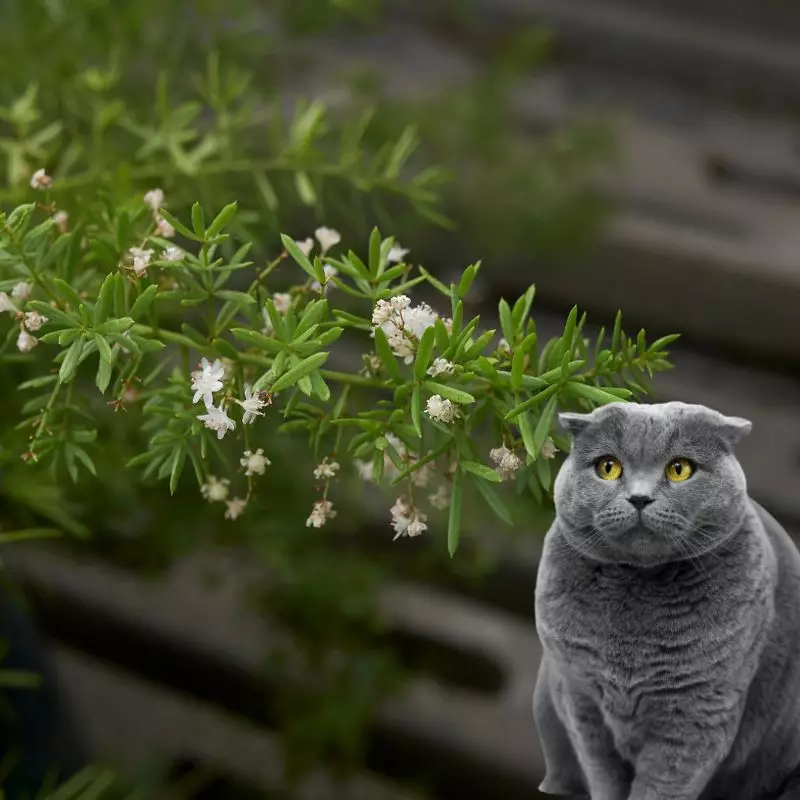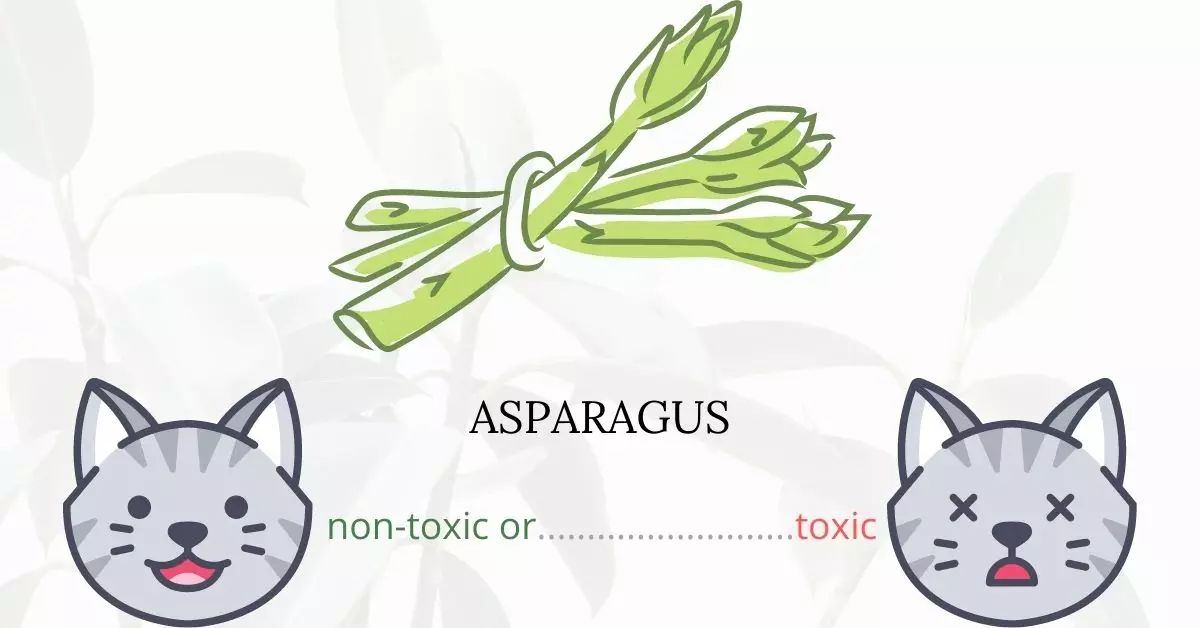Yes, asparagus or sprengeri ferns are toxic to cats. If consumed, these ferns can cause allergic dermatitis in cats, and ingestion of the berries can lead to symptoms such as vomiting, abdominal pain, and diarrhea. Scientifically known as Asparagus densiflorus cv sprengeri, this plant contains saponins, natural compounds that serve as a deterrent to grazing animals. When a cat consumes parts of this fern, these saponins can act as irritants, resulting in vomiting, diarrhea, mouth irritation, and direct cell damage which manifests as the aforementioned dermatitis.
This article has been written in collaboration with a team of experienced DVMs (doctors of veterinary medicine). Their expert contributions ensure the accuracy and relevance of the information presented here. Furthermore, to maintain the credibility and thoroughness of our research, we have consulted high-authority websites such as ASPCA and PetMD for every plant discussed, ensuring that our readers receive the most up-to-date and accurate advice possible.
Clinical Signs of Asparagus or Sprengeri Fern Poisoning in Cats

Should your cat come into contact with or ingest parts of the asparagus or sprengeri fern, it’s important to recognize the associated clinical signs and seek immediate veterinary intervention. Understanding the root cause of each symptom can be crucial for a timely and effective response:
- Vomiting: The saponins present in the asparagus fern can act as gastrointestinal irritants. When ingested, these natural compounds stimulate the cat’s vomit reflex, leading to regurgitation as the body attempts to expel the ingested toxins.
- Diarrhea: Just as with vomiting, the saponins in the fern irritate the gastrointestinal system. The body’s natural response to expel the irritants from the digestive tract often results in diarrhea.
- Irritation of the mouth: Upon ingesting or even just chewing parts of the fern, the saponins present can cause a direct irritative effect on the cat’s mouth, including the tongue and oral mucosa. This can result in salivation, discomfort, and a reluctance to eat.
- Dermatitis: If the sap or crushed parts of the asparagus fern come into direct contact with the cat’s skin, the toxins can lead to cell damage. This manifests as dermatitis, an inflammatory skin condition characterized by redness, itching, and possible swelling.
If you notice any of these symptoms in your cat after contact with the asparagus or sprengeri fern, it is imperative to consult a veterinarian immediately. Early intervention can be crucial in mitigating the effects of the toxin and ensuring the well-being of your feline friend.
First Aid and Treatment of Asparagus or Sprengeri Fern Poisoning in Cats

After conducting physical examinations, the veterinarian may also conduct several laboratory tests like blood tests and ultrasound as necessary. Once properly diagnosed, the veterinarian will most likely give IV fluids to your cat which will aid in eliminating the toxins from your cat’s system and also replenish the number of fluids he or she lost due to vomiting. The fluid therapy will also provide quick symptomatic relief of dermatitis. Administering activated charcoal may also be done by the vet depending on your cat’s condition.
Recovery from Asparagus or Sprengeri Fern Poisoning in Cats

Sapogenin poisoning caused by ingestion of asparagus or sprengeri fern, usually has no long-term consequences due to its primary role as an irritant. This means that most cats will recover quickly after receiving treatment. Ensure your cat is comfortable at home to regain strength and fully recover swiftly.
Prevention of Asparagus or Sprengeri Fern in Cats
Removing asparagus or sprengeri fern around your house is necessary. If these toxic plants are widely grown in your area, it is best to keep your cats indoors or never let them go outdoors unsupervised. You may also try building fences and placing safety nets around your house. Keep yourself informed by familiarizing the toxic and non-toxic plants for cats.
If you love plants but have cats at home, check out these lists:





